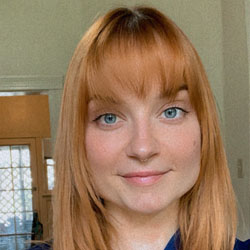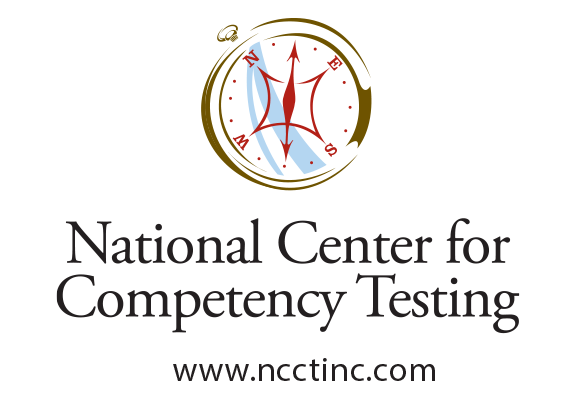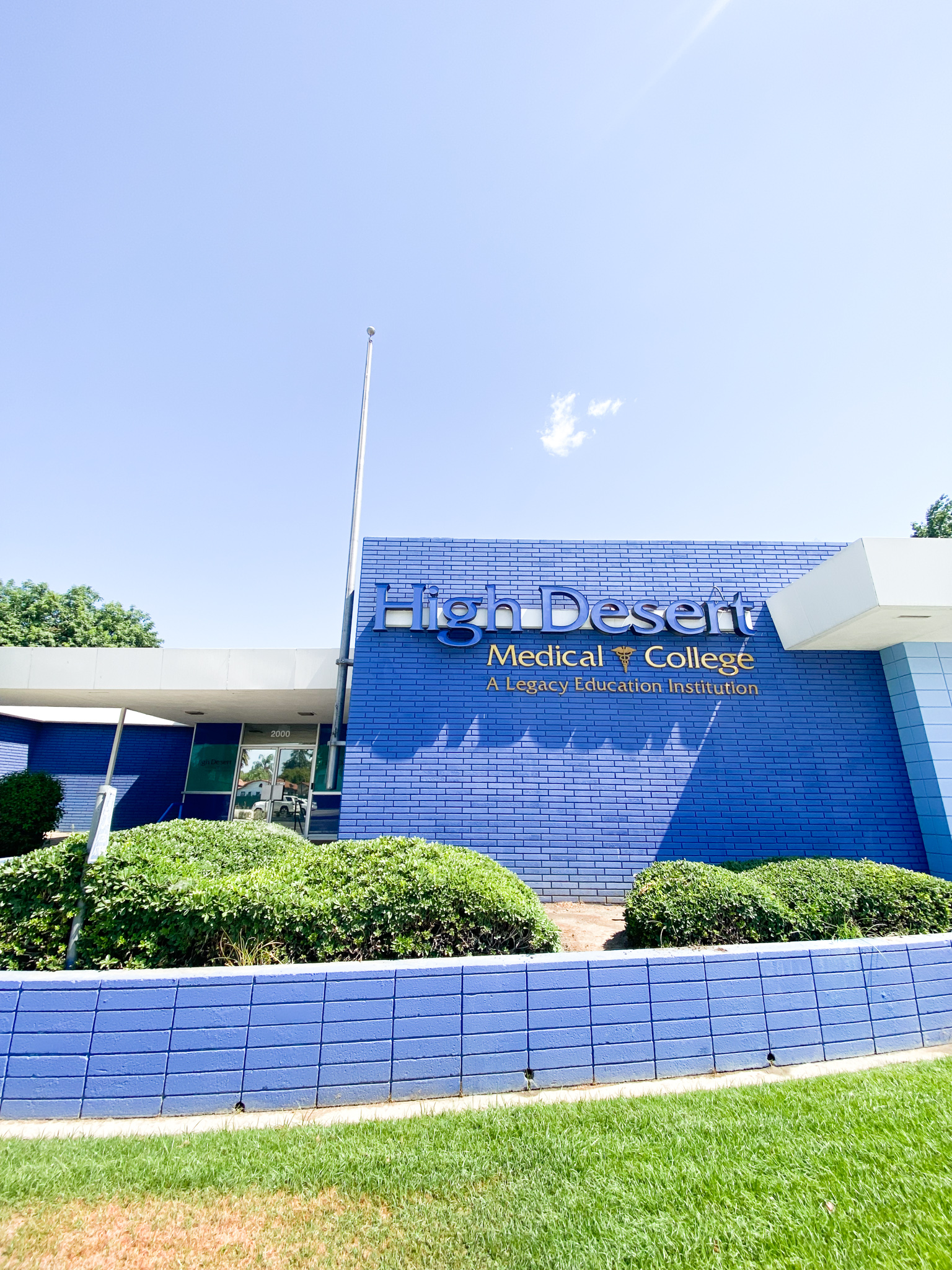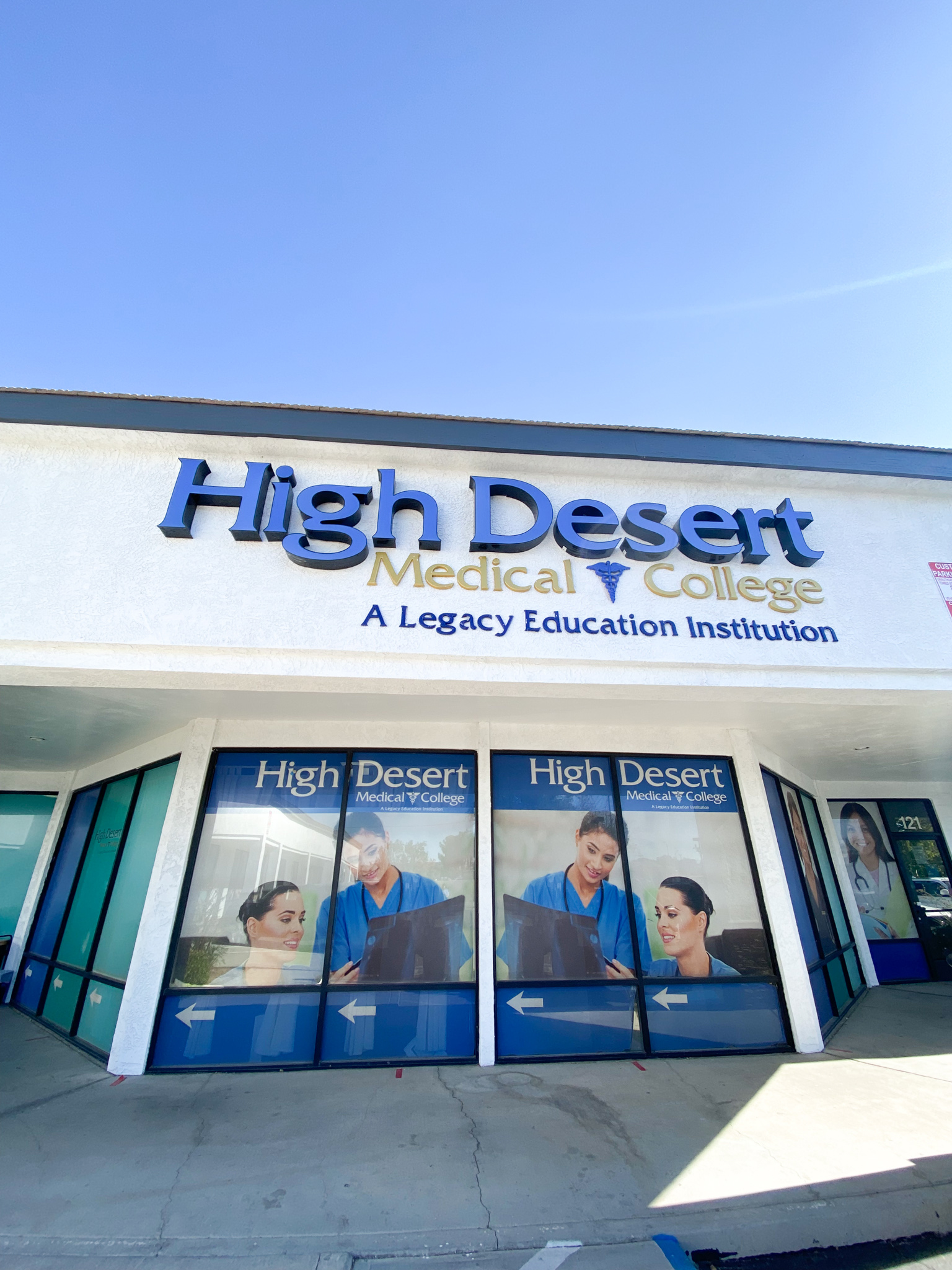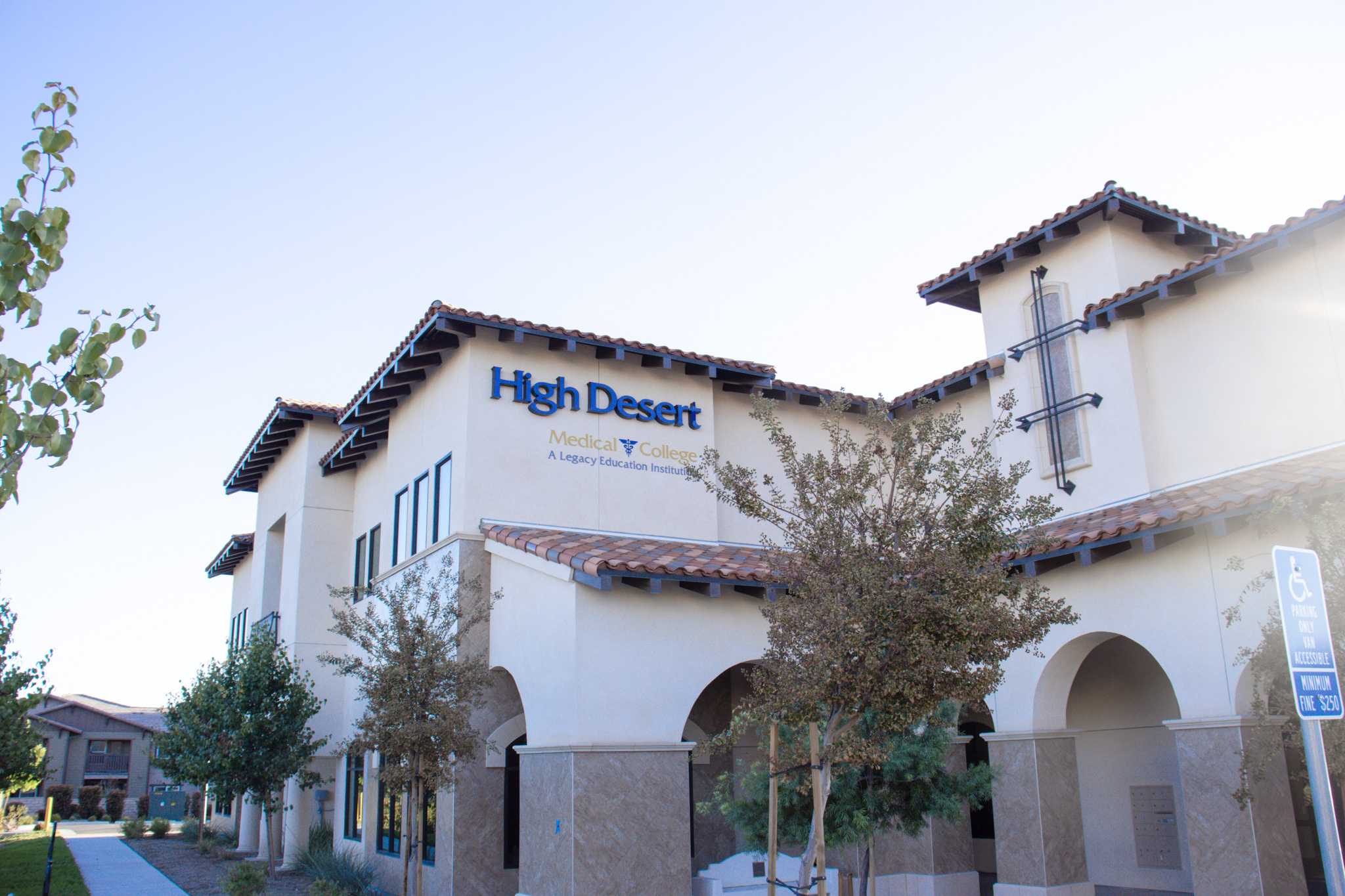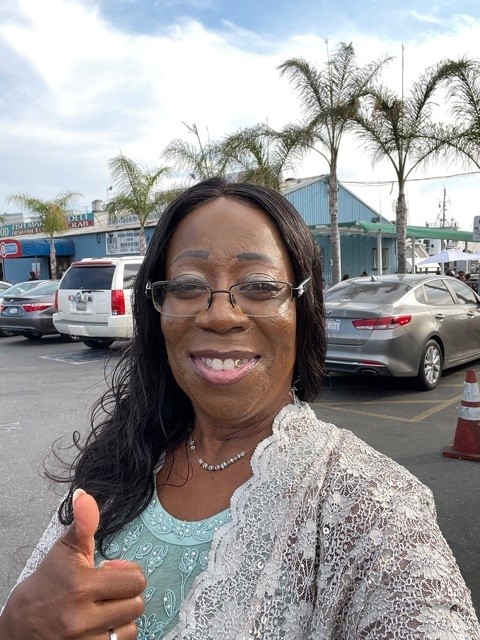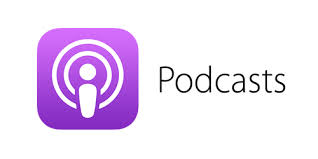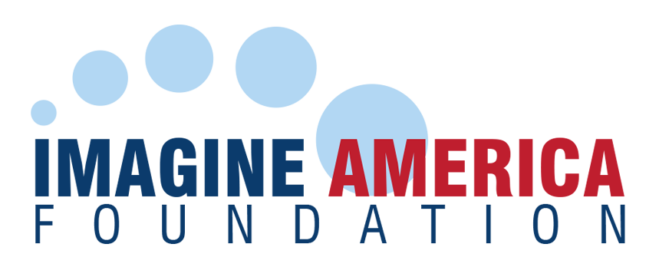Bob Martin: Hello and welcome to Imagine America Radio, a service of the Imagine America Foundation in Washington, DC. Today is our fourth and final episode in our medical career series, where we’re specifically focusing on medical career options. Joining us today is Loretta Benami, the allied health program director for Legacy Education, which covers High Desert Medical College in Bakersfield, Lancaster, and Temecula, California; Central Coast College in Salinas, California; and Integrity College in Pasadena, California. Welcome, Loretta. We really appreciate you being with us today. |
Loretta Benami: Thank you. Thank you. |
Bob: So today, we want to talk specifically about what medical assistants do, what they’re doing on a daily basis, and how you do a great job in preparing those people for those careers. We’re also very, very pleased to have some actual students joining us, which will be able to give us a whole different perspective on the kind of quality education you’re providing, the opportunities, and maybe why they’ve gone into it. So as a leading provider of medical assisting education, we couldn’t think of anybody better to talk to you but you. So why don’t we start off today’s program with you, Loretta? If you don’t mind just very quickly telling us—what’s the daily routine of a medical assistant? What do they look forward to? What are the things they’re doing, please? |
Loretta: Well, Bob, you asked a great question. What does a medical assistant do? They perform administrative and clinical tasks to support the medical office by keeping them running smoothly. The tasks include maintaining patient records, completing insurance forms, scheduling appointments, billing, and bookkeeping. And the clinical tasks include anything from recording vital signs, interaction with patients during an examination and collecting lab work, and preparing the patients for procedures. |
Bob: Would it be fair to say—with the exception of the doctor or the physician’s assistant—your people are doing pretty much everything else that’s patient-facing, right? |
Loretta: We perform as nurses. |
Bob: Yeah, yeah. Lee Doubleday: All right. So now that we have a better understanding of what a medical assistant does, can you briefly explain the career opportunity for medical assistants? What does the Bureau of Labor Statistics say about the demand for medical assistants nationally, and then maybe also more specifically in California? |
Loretta: Well, Lee, according to the BLS—which stands for the United States Bureau of Labor Statistics—the data is estimated that in 2019, there would be a need to hire over 864,000 medical assistants across the country. And in California alone, it’s projected that by 2028, there will be a need to hire over 126,000. Medical assisting is projected to grow by 19% by 2029, so that is a rapidly growing career field. |
Lee: Wow. Yeah. Well, I mean, I knew medical assisting was in high demand nationally, but it’s great to see the demand being so high in California as well. All right, that’s great. Okay. And on this episode, we want to talk about why someone would consider going to school to become a medical assistant. We just discussed one reason, which is, obviously, the country needs medical assistants. But from your experience, Loretta, what’s another reason someone chooses to enter this field? |
Loretta: What is another reason someone chooses, you ask me, to enter the field? It’s because they want to help people. It’s a steppingstone to enter the medical field and provide a foundation towards the nursing field. And as you can see, being involved with the pandemic going on, the medical field is the best field to be in at this day and age. |
Bob: It’s funny, Loretta. You would say that—I find myself now—when I go into my doctor’s, I find myself asking where they got their training and their preparation. I mean, I just kind of do. I don’t know why. I’m sure that you get that, and I’m sure you got to be running into people that say, “I’m seeing High Desert all over the place. I’m seeing their people all over the place here.” |
Loretta: Definitely. |
Lee: Yeah. Yeah. All right. Well, now we’ve heard from Loretta, why don’t we ask one of your students here, who we have on the call, that we’re excited to ask the question. Antonina, why don’t you tell us a little bit about why you chose to go to school to become a medical assistant? |
Antonina Haro: Hey, Lee and Bob. So, the reason why I chose to become a medical assistant is because I’m really passionate about helping people. Being in the medical field, that’s what we get to do. We get to help these patients—help them, see them get better, answer any questions that they may have. I’m always there wanting to help people. |
Bob: Yeah, just, Antonina, if you don’t mind, let me just follow—real quick follow-up. Do you have other health care professionals in your family, or are you the first one that’s decided to go into this career? |
Antonina: So, actually, my sister-in-law is actually a nurse with the Navy. So, I’ve seen her career and everything. And that’s something that I’ve always been passionate about, is wanting to help people, especially in time of need. When you need people the most is when I really want to help. |
Bob: Yeah. Yeah. So, you’re kind of—not second generation, but you’re the second person in your family that kind of took this charge at this calling to do this, right? |
Antonina: Right. Yeah. Absolutely. |
Bob: Very exciting. |
Antonina: And I have two kids at home, so trying to show them the way to help people. |
Bob: Yeah. Yeah. They’re getting to see a very good role model. My congratulations. Way to go. |
Antonina: Thank you. Thank you. |
Lee: All right. Now, let’s hear from Chad. Chad, can you tell us a little bit why you chose to get into this profession? |
Chad Jove: Yes. Thank you, Lee and Bob, so much for having us here, as well. And I would like to tell you, getting into the medical field—it’s been stated multiple times, helping people out, being there for promoting health and wellness for everyone. And learning, more recently, that there is more of a demand for male medical assistants, which also inspired me to join this field and want to help out anywhere I can, as well. |
Bob: Yeah. Yeah. You answered the question that I—you’re going to be—there’s going to be fewer of you than there will be females. |
Lee: All right. Awesome. Well, thank you very much, Chad, for your response. Now, I want to turn our attention over to Tamara. Now, Tamara, can you briefly explain why you chose to get into the medical assistant field? |
Tamara Garrison: Thank you—as everyone else has said—for having me here. It is a complete honor. Honestly, I have been in and out of the medical field now for almost three years. So, back when I started, it required so much certifications to be classified as a medical assistant. Or you could work under your provider or company cert. For example, at a plasma center, you don’t have to be a certified phlebotomist—you can work under their certifications. But like what [inaudible] was saying before—excuse me, not [inaudible], but, oh, Antonina. With the pandemic, I wanted to branch out from my norm, and I wanted to be certified—so that way I can travel to help people wherever they need the greatest help. And just really to service the community and our country the best way I can. |
Bob: So, the program that you’re in will allow you to get the certifications. The certifications will allow you to be able to be more flexible with where you locate or relocate the future. Is that what I hear you saying? |
Tamara: Yes. So, once you’re certified, you can always work as a traveling CMA. Or if you decide to continue on with the nursing, you can always be a traveling nurse. For me, I just love to help—like everyone else said. And I don’t want any limitations on how I can help and who I can help. I just want to be able to jump in in a real-life situation, to going to a hospital or doctor’s office and help people. |
Lee: Yeah, that’s a great answer. |
Bob: Are you the first one in your family in health care career, or no? |
Tamara: In my immediate family, yes. However, I have cousins that are neurosurgeons and cardiologists, so they inspired me to be in the medical field. |
Bob: Yeah, yeah. |
Lee: Very cool. Very cool. yeah. Awesome. Well, thank you very much, Tamara. That was a great answer. Now we’re going to turn our attention over to Dominique. Dominique, can you tell us a little bit about why you chose to enter the medical assistant field? |
Dominique Duckett: Thank you guys for having me here today. And yes, I would love to tell you guys why I chose. It’s because I like—you’re going to hear this over and over. Most of us who chose this field, it’s because we love to help people. We love to care for people. So, it’s going to sound repetitive, but it’s the truth. That’s exactly why we go into this type of a field. I feel that for me, when this pandemic hit, it just gave me more of a push to want to go into that field. So, I’m starting out with being a medical assistant. I want to further my career as well. But that’s the main reason is because just helping the sick and however I can help in any way. That’s what made me decide to come to school to become a medical assistant is just wanting—the need for help. |
Lee: Yeah. |
Dominique: That’s my main thing and I love doing that. |
Bob: Yeah. |
Lee: That’s great. |
Bob: As far as Lee and I are concerned, you guys have always been essential workers. It’s just now, all of a sudden, everybody’s kind of woke up and said, “Hey, we really need these people, and we need more of them.” |
Dominique: Right. Yeah. |
|
Bob: So, the consistent message that I’m hearing is, “We want to help people. We want to help people. We want to help people. We want to help people. We’ve seen other people in or around us that have demonstrated that. They’ve been good role models. And we want to be a little bit more like them.” Right? |
Dominique: Right. |
Bob: I mean, isn’t that right? You want to give back. |
Dominique: Yeah. |
Bob: That’s exciting. |
Lee: That’s admirable. |
Bob: Exactly. |
Lee: Awesome. Well, thank you, Dominique. Now, Katie, can you tell us a little bit about why you chose to enter the medical assisting field? |
Katie Petitti: Absolutely. Thank you for having me. I’ve always been interested in sciences but also helping people—over and over, it’s going to be repetitive, like she was saying. Anybody in this field is honestly looking to help those around them. I was personally looking for a steppingstone into nursing, and this was the perfect opportunity for me. |
Bob: Yeah. |
Katie: It allowed me to kind of jump into the medical field. The path I was taking was—it was taking too long, and I just wanted in. I’m very determined and I’m very excited to be in the medical field, so this was a way for me to literally dive in headfirst: “Let’s get into it.” I’m really excited to be in school. I love learning. And, so, this has been exciting. Every day we go in and we get to do hands-on procedures. Yesterday I did my first venipuncture on my instructor who was so willing and so beautiful to even let me do that on her. And I got it first try and we celebrated, and it was honestly super exciting. |
Lee: Yeah, that’s cool. |
Katie: So, it’s been it’s been really cool. Yeah. |
Bob: So, Katie, would I be fair to say—I don’t put words in your mouth, but the opportunity at High Desert gave you the ability to start your career path, or the first step in that path? And ultimately, what I thought I heard you say, you want to be a nurse. |
Katie: Yes. Oh, absolutely. |
Bob: Which you didn’t do it and you’re on a direct path provided—with the path provided to you by your school that you’re going to, High Desert. So would that be fair? |
Katie: Absolutely. |
Bob: I don’t want to put words in your mouth. |
Katie: That’s absolutely what I was saying. Absolutely. So, I have been yearning to be a nurse since I was little. It’s just my calling. I know what I want to do, where I want to be, and High Desert has absolutely allowed me to just dive in headfirst. |
Bob: I guess if we were to ask our other guests that have already been on, many of them would probably say the same thing, which is this gives them a chance to stick their toe in the water, see how we like it, see how it feels, and—more importantly—being in a nurturing environment that gives you the opportunity to be successful. You’re going to be successful at High Desert in the first program. You’re going to then feel good about going into the second one and the third. And then ultimately, you’ll be a registered nurse. |
Lee: That’s the goal. All right. Thank you, Katie. |
Loretta: And Bob, if I can add to that, Bob, I do encourage medical assistants to further their education. We do offer a licensed vocational nurse program. So, I do encourage them to further education as well. |
Lee: Yeah, makes sense. |
Bob: I think that’s real clear. It’s absolutely clear to me that you, Loretta, are providing the leadership for these people. And that’s the exciting thing, which is you get a really nice mix of people that are committed. You give them the ability to say, “Follow me and I will lead you to where—I will help lead you to—you’re going to have to work. You’re probably going to have to work harder than you’ve worked in a long time—” |
Loretta: Yes. Definitely. |
Bob: “—but you’re going to see what the goal is going to be—” |
Loretta: Yeah, it’s all worth it. |
Bob: “—and you’re going to get the personal achievement. You’re going to get all the other rewards that you want.” |
Lee: Awesome. All right. Well, thank you, Katie. And Consuelo, I think you have joined us halfway through the call, but I’d like to ask you as well. Why did you decide to get into medical assisting? |
Consuelo Zavala: Hi. Good morning. Sorry about that. Yes, I decided to get into the medical field because I feel it is something I’ve always wanted to do. I like helping people, learning new stuff. Just being involved with others is something that I’m very interested in. So, when I enrolled in High Desert Medical School, I knew it was my time to start. So yeah, pretty much, it’s like a repetitive thing. I want to help others and High Desert helped me and is allowing me to do that. |
Bob: Yeah, it gets to what we would have—again, I don’t want to put words in your mouth. The nice thing about High Desert is they’ve got a proven track record of success, where they’ve taken people like you that have a passion but just want to be led into success, and they’ve got a track record of doing just that. It’s very exciting. Now, are you the first one in your family to go into health care, or do you have others? |
Consuelo: Honestly, my mom—when we were little, I remember she was in the medical field, but she stopped, I guess. I don’t know her reasons. Realizing that she was there and she liked it, and when she found out I was getting in this field, she was very excited for me. So that was even more of a push for me to continue. So yeah, that’s why I’m here. |
Bob: That’s exciting, very exciting. |
Lee: Yeah, that’s great. All right. Thank you, Consuela. Thank you. |
Consuelo: Thank you. |
Lee: I think that all of the reasons we heard here are fantastic reasons, and you heard it straight from one of the leading providers and medical assistant training with Loretta, and also Loretta’s students. The main reasons that I keep hearing over and over, first and foremost, is that they’re really passionate about helping people. And due to the pandemic, I think that has pushed a lot of individuals into this career field. They were maybe considering it to begin with but now know this is their true calling. Another couple of reasons that I’m hearing is that a program like this really allows you to be certified, which will allow you to move around and do more things. It’s also a steppingstone, perhaps, into a nursing career field and allows you to kind of get your feet wet in the industry, if you will, and to see if this is exactly what it is that you want to do. I really like all the responses that we got here today, and I really appreciate you all taking the time. Do you want to— |
Bob: Yeah. I just want to go back to Loretta real quickly. I mean, we’re going to send this—we’re going to send this podcast out, and I’m sure there’s going to be interested people that are going to want to know. So why don’t you take a moment, Loretta, if you don’t mind? If they want to get a hold of you or they want to look at High Desert or whatever they want to do, why don’t you give us the www, and why don’t you give us all that kind of information, if you don’t mind? |
Loretta: Okay. So, the name of the college is High Desert Medical College. The website is www.hdmc.edu, and we have an 800 number. That number is 1-888-633-4362. We have several courses. They can range from ultrasound tech to certified medical assistant to licensed vocational nurse to veterinary assistant, pharmacy tech to dental assistant. We have campuses everywhere throughout the California area—Salinas, as you stated, Temecula, Lancaster, Palmdale, and Pasadena. So, we have campuses everywhere. |
Bob: And you can contact Loretta if you want to start that career path, you want to take the first step, you want to talk to someone who can help you sort out the possibilities for you. I’m very excited. We really appreciate the opportunity. We really appreciate your students giving us their time because—it’s one thing for Bob and Lee to have this show and send it out. And we have a really nice listenership, but mostly, we’re talking to people like you, Loretta. Seldom do we get an opportunity to get five or six or seven very, very bright people— |
Lee: Really cool. |
Bob: —very engaged people. Because now, when we send this out, they’re going to say, “Geez, I think I’m like Katie, or I think I’m like Tamara.” You know what I mean? You know what I mean. You know what I’m saying. |
Lee: Yeah, absolutely. |
Bob: Yeah, I— |
Lee: It adds a lot to this podcast. |
Bob: It does. It does. |
Loretta: Definitely. |
Bob: So, before we close, you gave us the information. We really appreciate it. If there’s anything else that people want to know about this podcast, you want to think about Imagine America Radio. They can go to our website, which is www.imagine-america.— |
Lee: —org/podcast. |
Bob: Yes. Thank you, Lee. Thank you, Lee. And on behalf of Lee and myself, we really want to help. I hope everybody has a great day and keep doing great things. |
Lee: Yeah, thank you all for joining us and everything that you do for your community as well. |
Loretta: Thank you, Lee and Bob. |
Bob: Bye-bye. |




